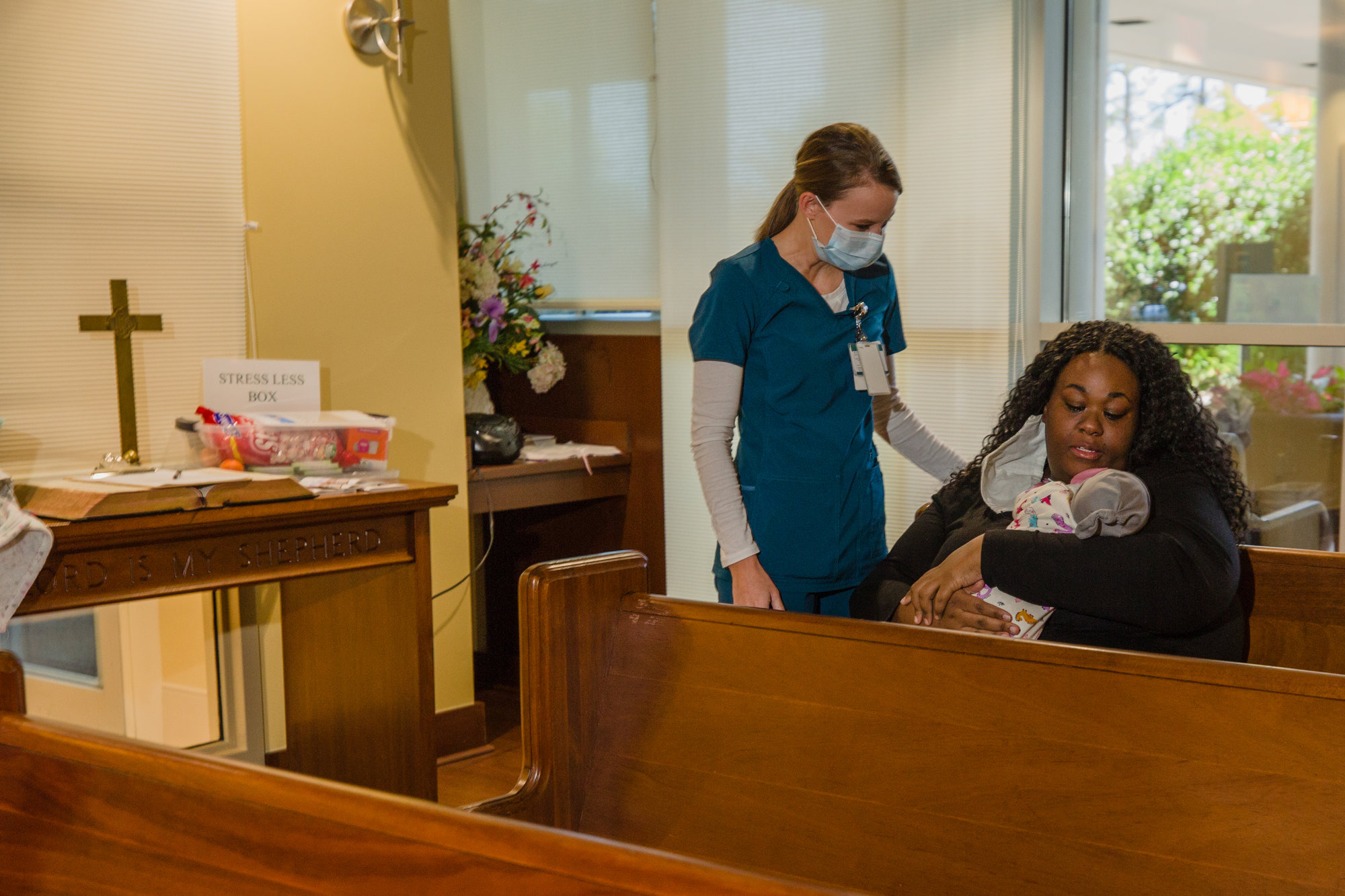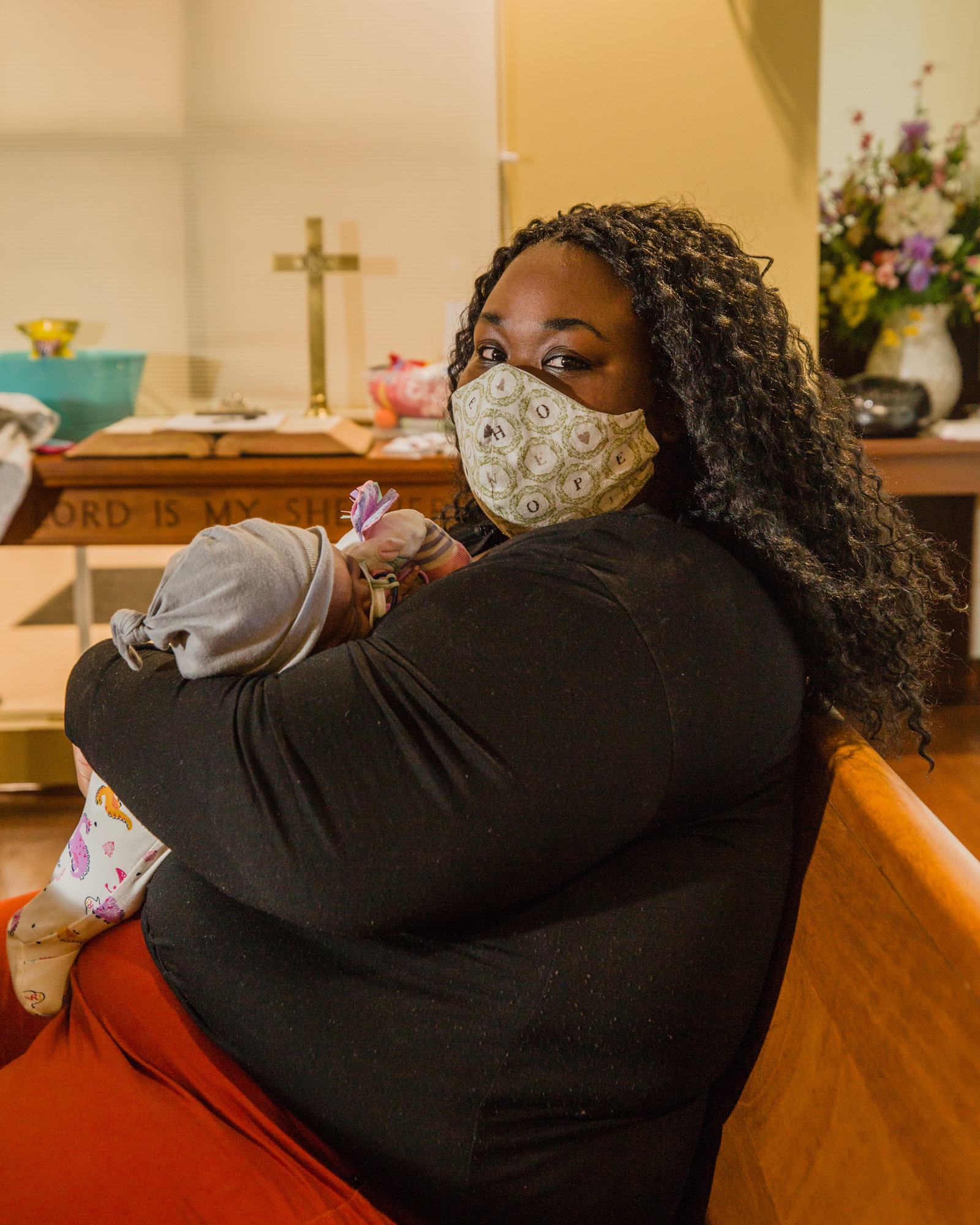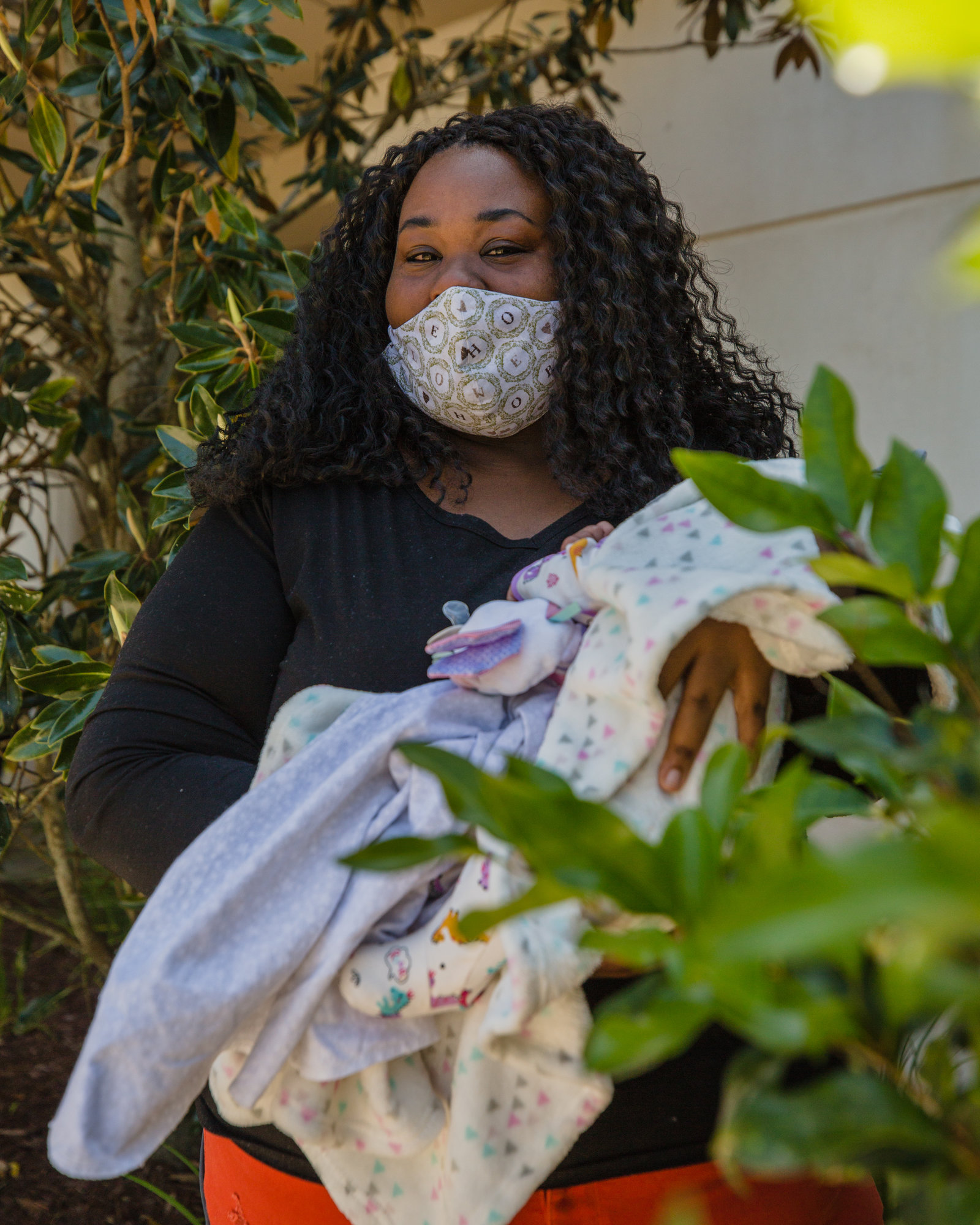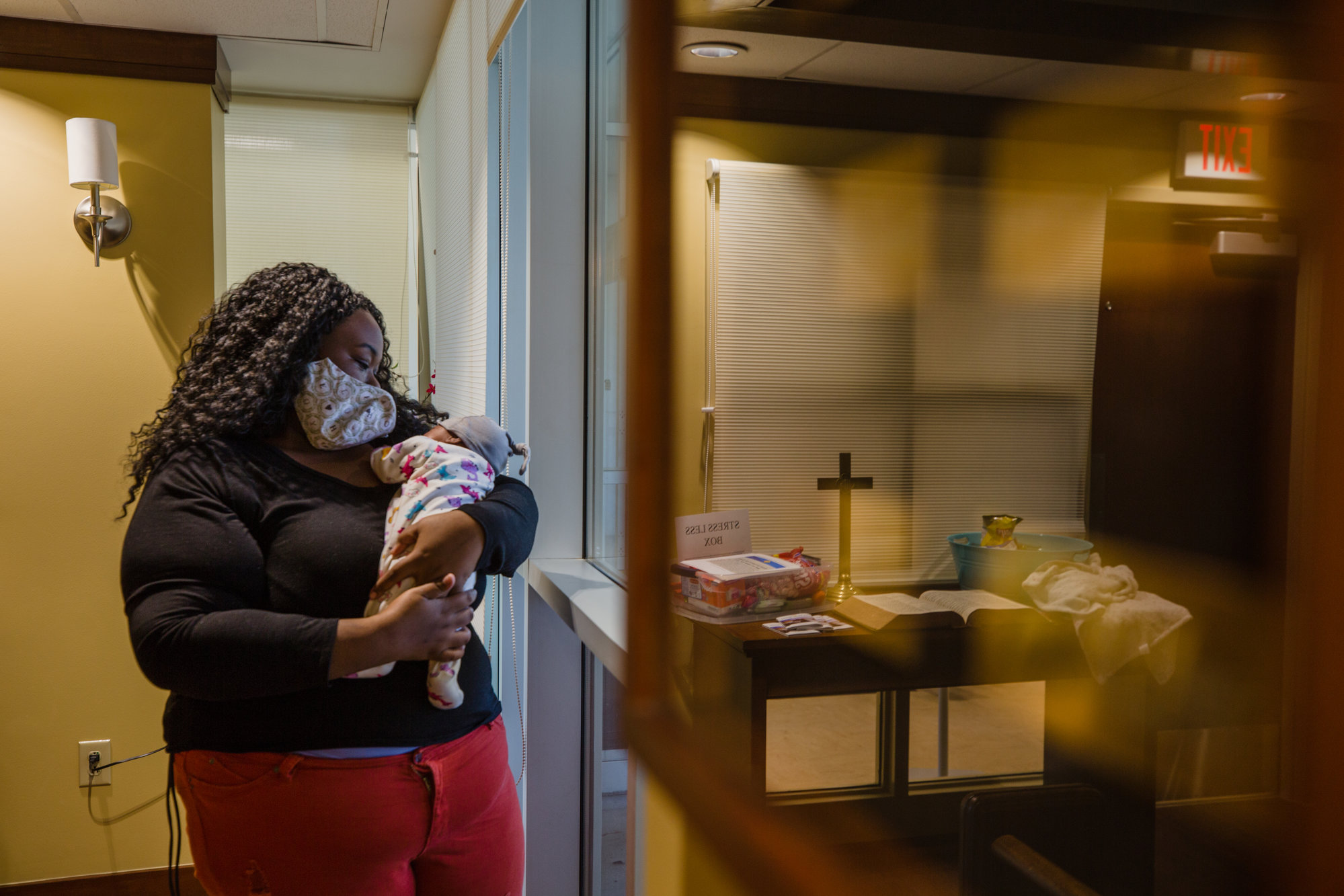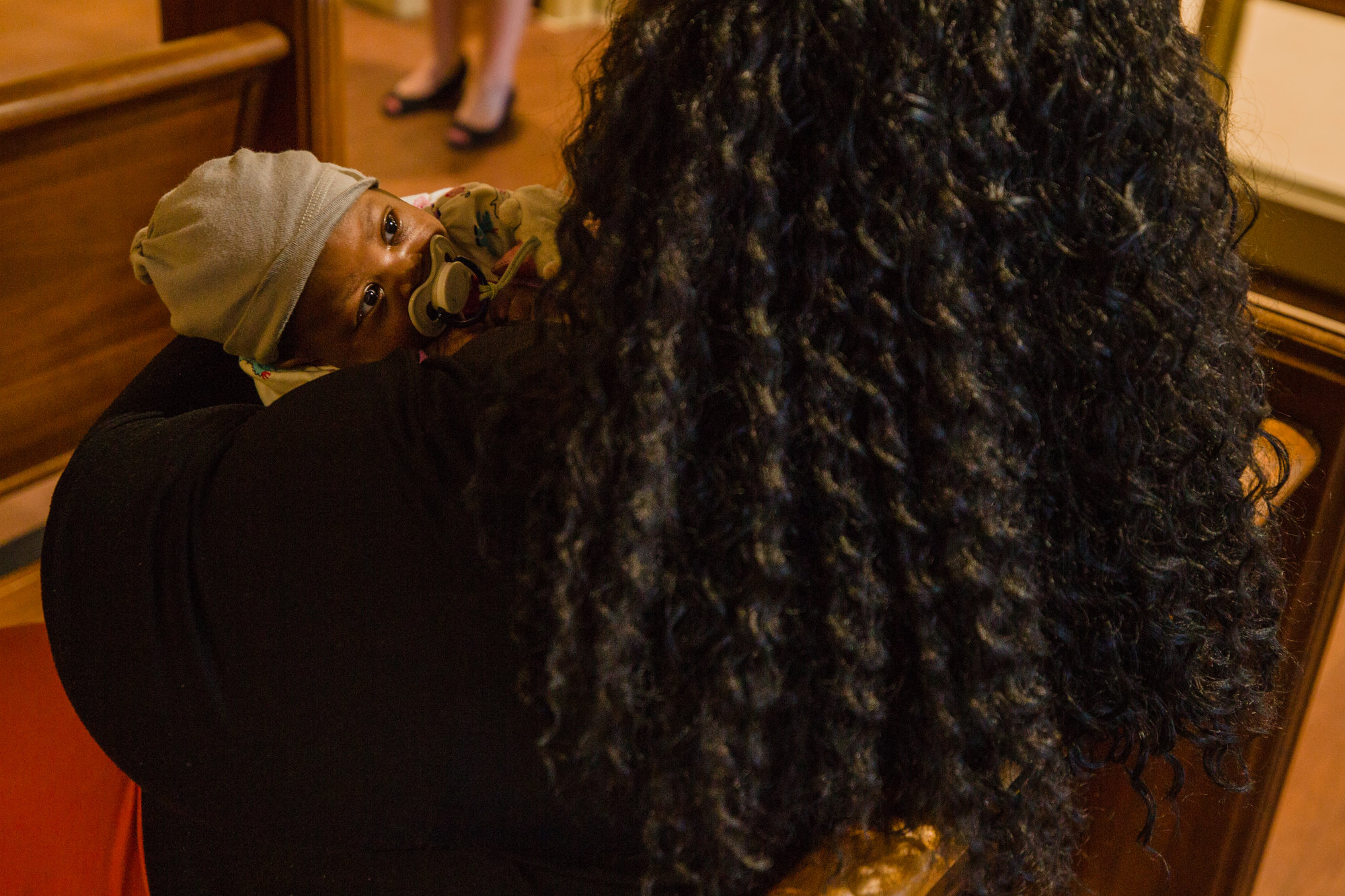New mother with COVID-19 gives birth in Clarendon
kayla@theitem.com
All our coronavirus coverage is free to the public. It’s the right thing to do as a public service to our community. If you find this article helpful or informative and want to support our continued coverage, please support us with a tax-deductible donation.
To find all our coronavirus coverage, including helpful local resources and website links, click here.
---
It took two weeks for the new mom to fight her way back from COVID-19's death grip before she could cradle her daughter in her arms. When she handed her to the nurse, she didn't know if it would be for the last time.
Shaquilla James returned this week to McLeod Health Clarendon to donate plasma in the hopes the antibodies in her blood from the coronavirus can help save someone else. She was met with tears.
Tears from the nurses who cared for her as she gave birth while being the first COVID-19-positive pregnant woman to do so in McLeod's seven-hospital system. Tears from her midwife. From her Nurse Family Partnership nurse, who has been working with the first-time mom since she was six weeks pregnant. From basically anyone, whether they watched her story unfold or heard it after the outcome was clear.
As if motherhood, especially for the first time, isn't an emotional enough experience to navigate, throw in a highly contagious respiratory illness whose ongoing pandemic means she had to choose either her mother or her sister to be in the delivery room with her and that the only thing she could see were masks, gloves, gowns, eyes and foreheads.
It started with a cough. When the ambulance came to pick her up after her water broke last month, she could barely get dressed.
"I was so weak and tired from the coughing," James said.
When Aubree Pearson was born, they asked James if she wanted to isolate herself from her newborn.
"At first, I said no, but then I changed my mind because I didn't want nothing to happen to my baby," she said, tears rolling behind her mask at any mention of the bundled girl sleeping in her Nurse Family Partnership nurse's arms a few feet away.
James got worse fast. They moved her to the ICU but soon had to put her on a ventilator and transfer her to McLeod Regional Medical Center in Florence. She said she was asleep for two or three days. Hospital staff say it was longer.
"When I woke up, they explained what had happened. I couldn't talk, so Kelly (Orton, a nurse in the Medical ICU in Florence), gave me a paper and pen to write down what I wanted to say, and I said, 'Please don't leave me,'" James said. "And she never left me."
Her daughter was motivation to get better, she said. Nurses printed pictures James' mother and sister sent of Aubree and hung them up in the hospital.
Hearing both Mom and baby were back at the hospital on Thursday, nurses and her midwife all came in to say hi.
When moms get sick and have to be transferred to Florence, where there's a higher level of trauma services, they sometimes lose contact for a few days, left wondering how they're doing.
"The sad thing is we don't get to see them necessarily (when they do get better), so it was really good to get to come back and see her," said Tom Chappell, the McLeod Women's Care Clarendon certified nurse midwife who delivered Aubree.
More than a nurse
Alison Baggette works with 31 first-time mothers-to-be in Clarendon County through McLeod Health's Nurse Family Partnership. James tested positive before she had her baby, and now a mom with a 5-month-old has it. Both babies tested negative.
Baggette's job is to work with the program participants through pregnancy and until the baby turns 2. She helps prepare them for motherhood, connects them with resources and talks through their fears. She helps them get a job. She helps them finish school. Whatever they need. She's like a walking, breathing, individualized new-mom encyclopedia.
Participants are often teenagers but are also in their 20s and 30s - James is 26 - and looking for extra support.
"These moms, we don't just see them a couple times. I've been there since she was six weeks pregnant," Baggette said.
When James was fighting for life, Baggette was still supporting them.
"I went into thinking about the child that was 3 days old without her mama that she's heard since she was 16 weeks pregnant. Her mama's voice, this voice was taken away from her, and that's all she knows because she can't see," she said.
Baggette had to prepare. Emotions aside.
"I had to go to her sister, who has never had a child, and her mom and just educate them," she said.
She brought them diapers and taught them how to install the car seat, how to make the newborn's sleeping space safe. Everything in a few hours.
All while checking on James in the hospital.
'I will be a living testimony'
James doesn't know how she contracted the virus. She's been staying home. She was embarrassed.
"Being from a small town, everyone's going to hear you got it. But Lord, being through what I went through, I wouldn't wish that on my worst enemy," she said.
She now wants to tell her story because people need to take this virus seriously, she said.
"When I was laying in that bed with that tube in my throat, I said, 'Lord, if you get me out of this, I will be a living testimony to how wonderful you are,'" she said. "For everybody else, stay home. Just stay home. Wash your hands. Try not to get it. Because it can kill you. And you're going to be by yourself. We have great doctors here. My god, they're so good. But there's nothing like your family."
James is one of a growing number of recovered COVID-19 patients who is now giving back by donating plasma to be given to critically ill patients.
McLeod is participating in a study through Mayo Clinic to test the effects of such convalescent plasma, and Dr. Catherine Rabon, a hospitalist and McLeod Health Clarendon's chief medical officer, said early studies are promising.
"It's a good way for someone who is frustrated by having to quarantine ... They feel like the virus has taken over their life. It's empowering for them because they can take control and help somebody else," Rabon said. "It gives them a sense of community."
James knows she could very well not be here. She wants to help however she can, starting with issuing a constant flow of thanks to those who stood in as and with her family.
"When I first got her back, I didn't know whether to cry or smile. It was just so many emotions," she said. "Even now, I just look at her. I'll just stare at her. Oh my god. I love my baby."

